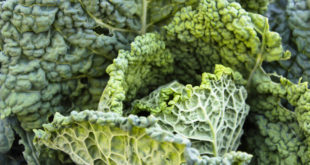Coconut Oil Basics
Depending on the temperature, your coconut oil can have a different look. Coconut oil is liquid above 25°C, and below that it will be a solid fat. Coconut oil in its solid state is white, thick, and creamy. In its liquid state it’s clear and easy to pour.
Coconut oil can be stored in either its liquid or solid form, does not need to be refrigerated, but should not be stored in direct sunlight. Due to its stability, coconut oil has a long shelf life of two or more years.
What kind of coconut oil to buy?
There are a lot of different labels and claims plastered over the various goods brands of coconut oil. Knowing what these labels mean can help you pick a product that want to consume. So let’s get to the varies labels you might see:
- Organic vs. Non-Organic
Certified organic coconut oil means that the coconuts that were used for the oil were grown without the use of pesticides. Generally speaking this is important when choosing a coconut oil. However, there are some brands that claim to use coconuts that are grown in more remote locations without pesticides that do not go through the organic certification process. This is where reading labels and doing a little research could save you money without compromising your food standards. In this instance, Google really is your friend.
- Refined vs. Unrefined
Refined coconut oil has been more processed than unrefined oils. The refining process usually takes out much of the coconut “flavor” and the oil has a higher smoke point making them excellent choices for cooking foods at higher temperatures. But there is a huge difference in how coconut oil has been refined, so it’s important to know the terms. Look for coconut oil that uses only chemical-free methods.
Unrefined or “Raw” coconut oil is made from fresh, raw, coconut meat. There are no added chemicals and high-heat is not used to further refine the oil. With this, you also experience more coconut flavor. It contains all the health benefits of coconut oil.
- Virgin vs. Extra Virgin
Unlike olive oil, there is no difference between “virgin coconut oil” and “extra virgin coconut oil.” You can feel confident buying coconut oil that uses either labeling.
- Centrifuge Extracted Coconut Oil
This coconut oil has a light coconut flavor… often enjoyed by people who eat coconut oil right off the spoon. It is made from freshly pressed coconut milk, chilled and separated by centrifugal force. This coconut oil is considered raw and retains all of its nutrients. It’s also usually the most expensive coconut oil you can find.
- Cold Pressed
Cold pressed coconut oil is made from fresh, low temperature dried coconut flakes. It has a stronger coconut flavor and tiny traces of the soluble constituents extracted from the dried coconut meat. It is also considered “raw” and retains all its nutrients.
- Expeller-pressed coconut oil
Expeller-pressed is a mechanical extraction process that does not rely on solvent extracts or chemical processes. It has less coconut taste than cold-pressed or “raw” coconut oil, and a higher smoke point. This makes it a great oil to use for cooking.
To sum up
Choose the coconut oil that is labeled organic, virgin / extra virgin, and cold-pressed. This is perfect for non-heat or low-heat cooking. The key is to avoid chemically-processed, hydrogenated coconut oil.
Original Source
Bonus: here you can find a lot of frequently asked questions and answers.
 bfc.green Promoting Green Lifestyle
bfc.green Promoting Green Lifestyle


